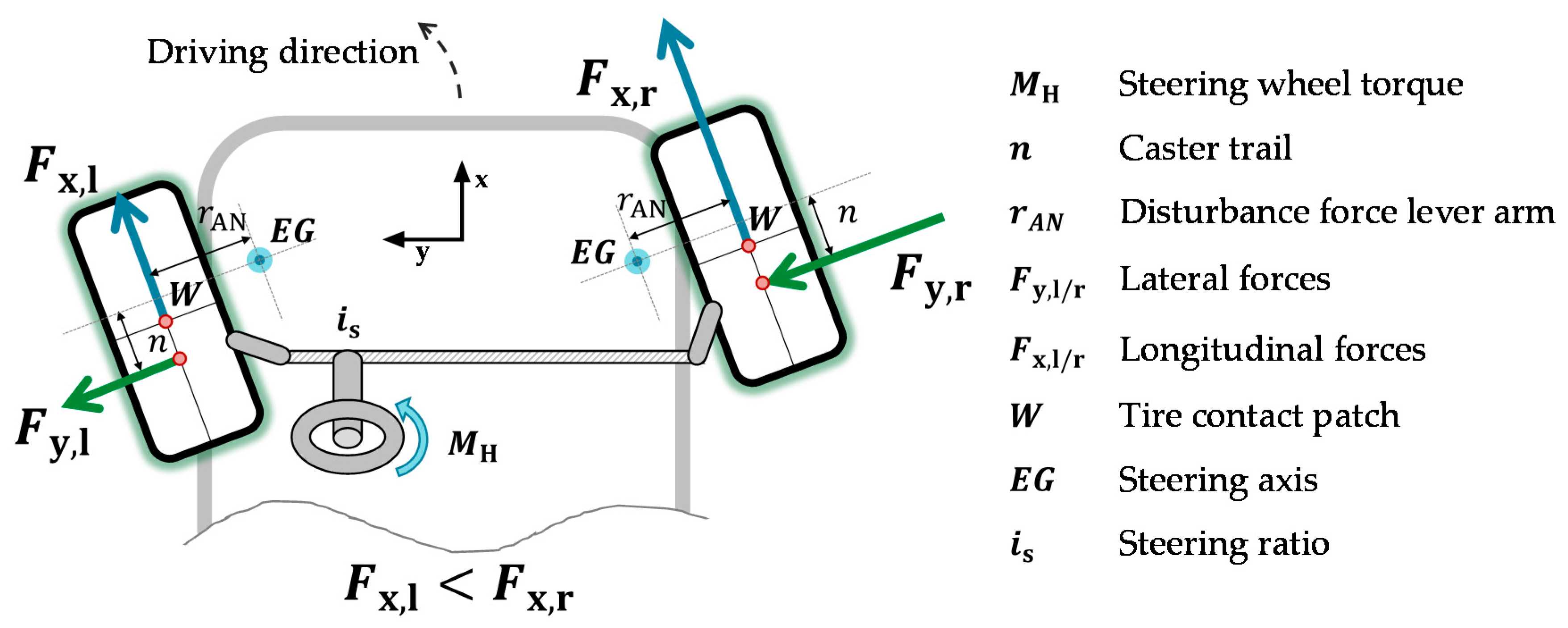Reducing Energy Demand using Wheel-Individual Electric Drives to Substitute EPS-Systems
- Autor:
-
Quelle:
Energies 2018, MDPI (Multidisciplinary Digital Publishing Institute), Basel, Switzerland
Abstract
The energy demand of vehicles is influenced not only by the drive systems but also by a number of add-on systems. Electric vehicles must satisfy this energy demand completely from the battery. In this way, the use of systems such as power assisted steering directly results in a range reduction. The “e2-Lenk” joint project funded by the German Federal Ministry of Education and Research (BMBF) involves a novel steering concept for electric vehicles in which the possibility is used to integrate functions into the drive train. Specific distribution of driving torque at the steered axle allows the steering wheel torque to be influenced so as to support the steering force. This provides a potential for complete substitution of conventional power steering systems in an energetically satisfactory way. This paper describes an open-loop control technique to demonstrate the potential of wheel-individual drives influencing the driver’s steering torque in the interest of reducing energy demand. Compared to conventional power-assisted steering systems, a reduced energy demand becomes evident over a wide range of operating conditions.

